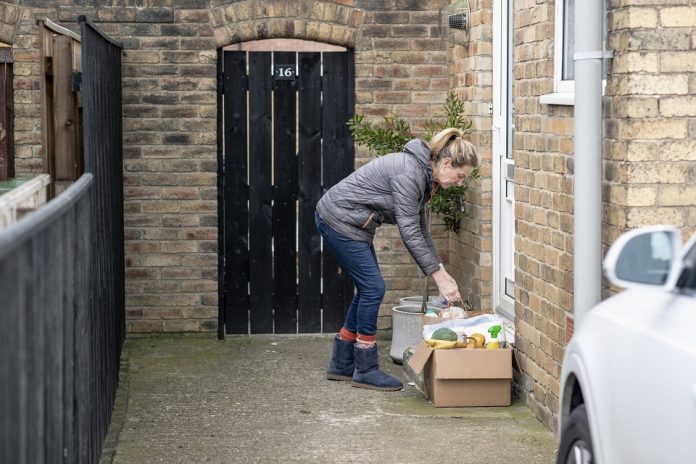- Updated guidance is being issued for the clinically extremely vulnerable in areas placed into new Tier 4 restrictions from 20 December
- This group of the most vulnerable is strongly advised to stay at home at all times, unless for exercise or medical appointments, and not to attend work, even if they are unable to work from home
- The advice reflects that which was in place across England during November, and a similar support package will be available
Clinically extremely vulnerable people across London, the South East and East of England have today received further guidance on keeping safe as they are moved into the new Tier 4 restrictions, the government has announced.
The updated guidance, which is the same as was in place during November and which clinically extremely vulnerable individuals are strongly urged to follow, includes:
- socialising: stay at home as much as possible, except to go outdoors to exercise or attend health appointments
- work: if people cannot work from home, they should not attend work. They may be eligible for Statutory Sick Pay, Employment and Support Allowance, Universal Credit or the Coronavirus Job Retention Scheme during this period. People in the same household who are not clinically extremely vulnerable can still attend work, in line with the new national restrictions
- school: if a GP or clinician has advised that a child should remain on the shielded patient list, they are advised not to attend school during term times. Children who live with someone who is clinically extremely vulnerable, but aren’t themselves, should still attend school
- going outside: avoid all non-essential travel – they should continue to travel to hospital and GP appointments as required unless told otherwise by their doctor. They are strongly advised not to go to any shops or to pharmacies, and government support is available for those who need it while they remain at home
The government will be ensuring that support is available for those who need it, such as access to food and medicines and signposting to local support or befriending services, to enable people to stay at home as much as possible over this period. NHS Volunteer Responders can also help with a regular, friendly phone call, and transport to and from medical appointments.
The clinically extremely vulnerable group includes those immune systems may be suppressed, or other specific conditions, for instance following an organ transplant, or those with specific cancers or severe respiratory conditions, such as cystic fibrosis. The group list is updated regularly as patients’ conditions or the scientific evidence changes, and people included on the list will receive a specific identifying letter.
Those with more general underlying health conditions or people aged 70 or over may still be more vulnerable to COVID-19 than the general population, so are also advised to stay at home as much as possible, to carefully follow the rules and minimise contact with others. Those who are clinically extremely vulnerable but living in Tiers 1 to 3 should follow existing guidance – there is no formal shielding advice currently in place in areas outside Tier 4.
Letters will be going out to all those affected by the new shielding rules for Tier 4 areas later this week, although we advise they may take slightly longer than usual to arrive due to the Christmas period. Anyone in Tier 4 areas who received the shielding letter in November and whose condition has not changed should follow the advice immediately until they receive the letter. We will also be issuing letters by email for those who have registered an email address with their GP practice.
Background information
Online service for registering for support
Those with the following conditions fall into the clinically extremely vulnerable group:
- solid organ transplant recipients
- people with specific cancers:
- people with cancer who are undergoing active chemotherapy
- people with lung cancer who are undergoing radical radiotherapy
- people with cancers of the blood or bone marrow such as leukaemia, lymphoma or myeloma who are at any stage of treatment
- people having immunotherapy or other continuing antibody treatments for cancer
- people having other targeted cancer treatments that can affect the immune system, such as protein kinase inhibitors or PARP inhibitors
- people who have had bone marrow or stem cell transplants in the last 6 months or who are still taking immunosuppression drugs
- people with severe respiratory conditions including all cystic fibrosis, severe asthma and severe chronic obstructive pulmonary disease (COPD)
- people with rare diseases that significantly increase the risk of infections (such as severe combined immunodeficiency (SCID), homozygous sickle cell)
- people on immunosuppression therapies sufficient to significantly increase risk of infection
- adults with Down’s syndrome
- adults on dialysis or with chronic kidney disease (Stage 5)
- women who are pregnant with significant heart disease, congenital or acquired
- other people who have also been classed as clinically extremely vulnerable, based on clinical judgement and an assessment of their needs. GPs and hospital clinicians have been provided with guidance to support these decisions







